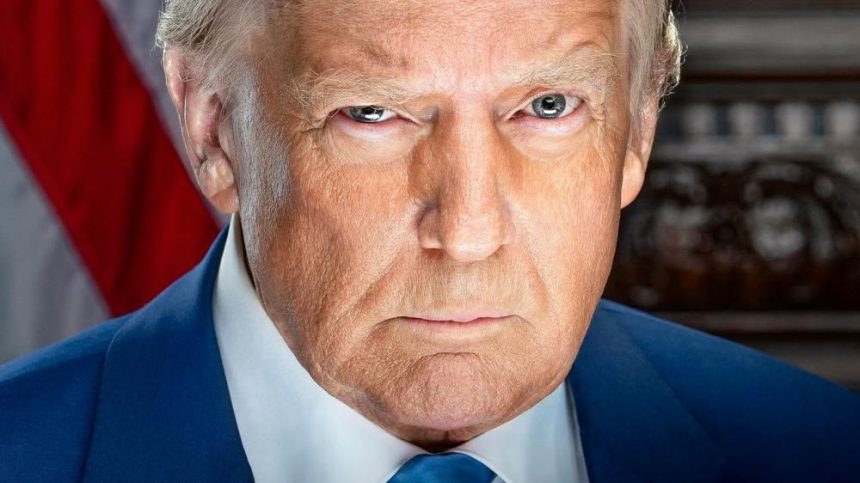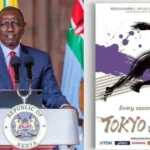India has hit back at Donald Trump’s decision to impose a Ksh12,950,000 fee on H-1B visas for skilled foreign workers in the US, sparking warnings by the Indian government that it would have humanitarian consequences, and one minister claiming they were afraid of our talent.
On Friday, September 19, 2025, the US president announced new rules around visas which allow companies to hire foreign workersin skilled occupations like IT, healthcare and engineering to work in the US for up to six years.
The H-1B visas are designed to allow US companies to hire skilled foreign workers in areas where there have been shortages in the domestic work market. India had become by far the largest beneficiary of H-1B visas, accounting for 71 per cent of approved visas in 2024.
However, the White House said the visas were being “abused” to undercut American wages and outsource IT jobs, claiming companies were laying off thousands of US workers, only to hire cheaper foreign labour from countries such as India through the scheme. Those on H-1B visas now account for 65 per cent of the IT workforce in the US.

A statement from India’s external affairs ministry over the weekend said the fee would have humanitarian consequences “by way of the disruption caused for families”.
The Indian government said it “hopes that these disruptions can be addressed suitably by the US authorities and emphasised that the exchange of skilled workers has “contributed enormously” to both nations.
In comments on Sunday, September 21, 2025, India’s commerce minister Piyush Goyal said: “They are also a little afraid of our talent. We have no objection to that.”
The new fee, which is 60 times the current cost, came into effect on Sunday. It immediately sent ripples across the IT and tech industries, which are the biggest beneficiaries of the H-1B scheme.
IT firms with clients such as Apple, JPMorgan Chase, Walmart, Microsoft, Meta and Alphabet’s Google are among those reported to be impacted.
On Monday, September 22, 2025, morning, the share prices of India’s biggest IT companies, such as Infosys and Tata Consulting Services, slumped in response to the H-1B visa fee hike.
Nasscom, India’s IT trade body, said the move would “potentially have ripple effects on America’s innovation ecosystem” and create “considerable uncertainty for businesses, professionals, and students across the world”.
The chief minister of the southern state of Telangana, Revanth Reddy, who sends a high number of skilled IT workers to the US on H-1B visas, urged Indian Prime Minister Narendra Modi to treat the issue on a “war footing”, warning that the suffering of Indian IT workers in America would be “unimaginable”.
Immigration lawyers in India reported receiving frantic calls over the weekend as confusion reigned over how the scheme would be implemented.

Before the White House clarified that the order applied only to new applicants and not holders of existing visas or those seeking renewals, companies including Tata Consultancy Services, Eli Lilly, Microsoft, JPMorgan, and Amazon advised employees on H-1B visas to stay put or return to the US before 21 September, forcing many workers from India and China to abandon travel plans and rush back.
One Indian worker on an H-1B visa told Indian news agency PTI there was “absolute panic”. “This is a travel ban,” they said, requesting anonymity for fear of losing their visa. “Even if a person has a valid H-1B visa stamped on their passport, if they are travelling or are on holiday, you cannot enter the US unless they have proof of the Ksh14.8 million payment. No one knows what the process is, what the fine print is.”
Another Indian worker said the new policies by the Trump Administration were making many already on H-1B visas reconsider staying in the US.
“People are really starting to question if they can continue to build their lives in the US because there’s such a high level of uncertainty around everything now,” they said.
In China, which accounts for 11.7 per cent of all H-1B visas – the second highest after India – the Chinese government has not yet responded to the news, but online, there was a sense of confusion and panic.
Some social media users accused the US of “maliciously crafting policies purely to torment H-1B holders”.
“Even if Trump had outright banned H-1B entry with a single decree, it wouldn’t have been this insulting,” said one person on the video app, Xiahongshu.
“We have endured the hardships of studying abroad and struggling to find work in a foreign country,” said another. “No matter how capable or hardworking we are, in an era of constantly changing immigration policies, we are just specks of dust.”



